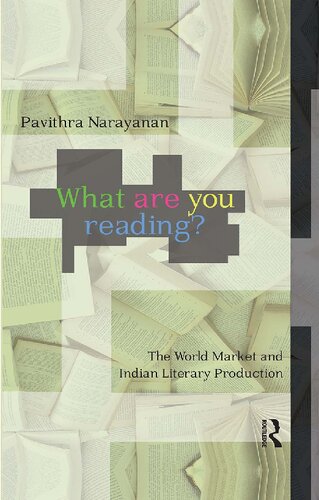

Most ebook files are in PDF format, so you can easily read them using various software such as Foxit Reader or directly on the Google Chrome browser.
Some ebook files are released by publishers in other formats such as .awz, .mobi, .epub, .fb2, etc. You may need to install specific software to read these formats on mobile/PC, such as Calibre.
Please read the tutorial at this link: https://ebookbell.com/faq
We offer FREE conversion to the popular formats you request; however, this may take some time. Therefore, right after payment, please email us, and we will try to provide the service as quickly as possible.
For some exceptional file formats or broken links (if any), please refrain from opening any disputes. Instead, email us first, and we will try to assist within a maximum of 6 hours.
EbookBell Team

4.4
22 reviewsThis book offers a material critique on various aspects of Indian literary production and its reception by its audiences. Taking a historical and contemporary lineage into account, the author variously discusses the social, political, and economic factors that impact upon and determine choices in the publishing world.
Examining the constructions of the archive of postcolonial works by Indian writers in relation to nationalist histories, language wars, and the relationship between economic policies and literature, the book forcefully argues that why we read what we read is more than coincidental. Placing the rights of minoritized and disadvantaged communities at the heart of the analysis of India’s decolonization and industrial projects, the book attempts to address not just inequalities in the publishing world, but also social inequities engendered by global capitalism. Offering a critique of academics who act as cultural gatekeepers of intellectual production, the book finally underscores the disconnect between the academic theory and practice of scholars of postcolonial studies who argue against inequality and marginalization while simultaneously supporting hegemonic academic practices.
This book will be of interest to scholars of development studies, cultural studies, literature, postcolonial studies, economics, and those studying globalization, as well as the interested lay reader.